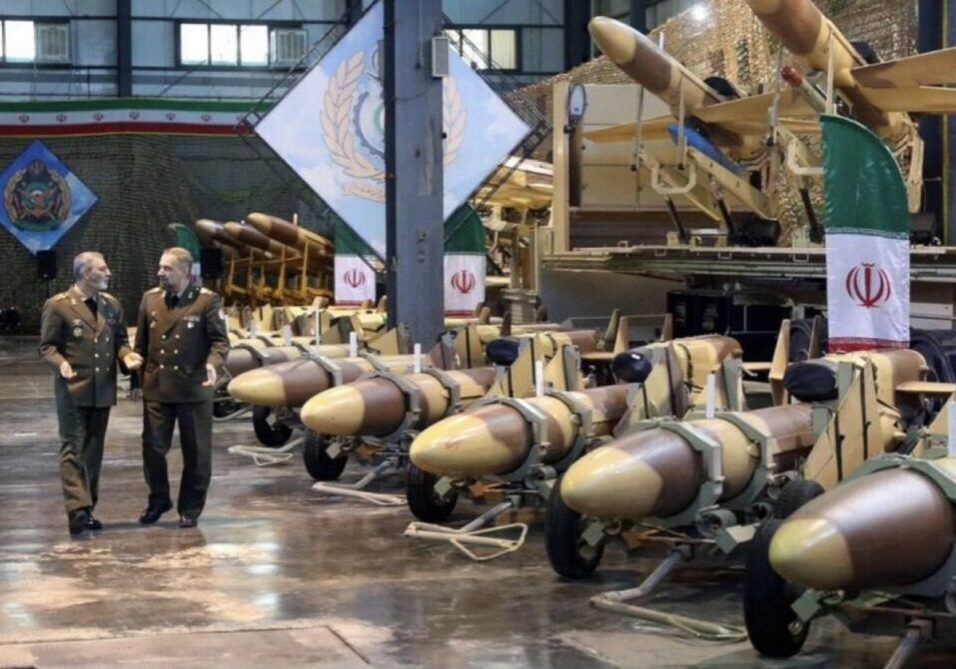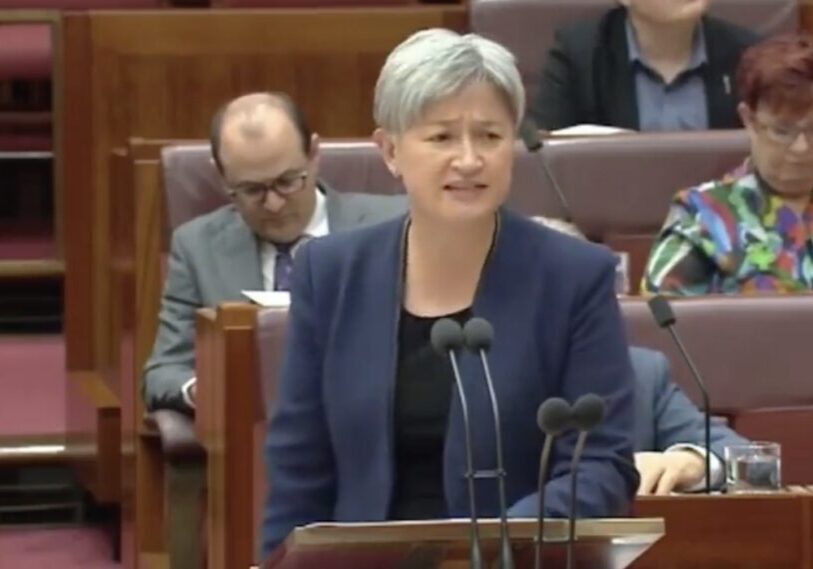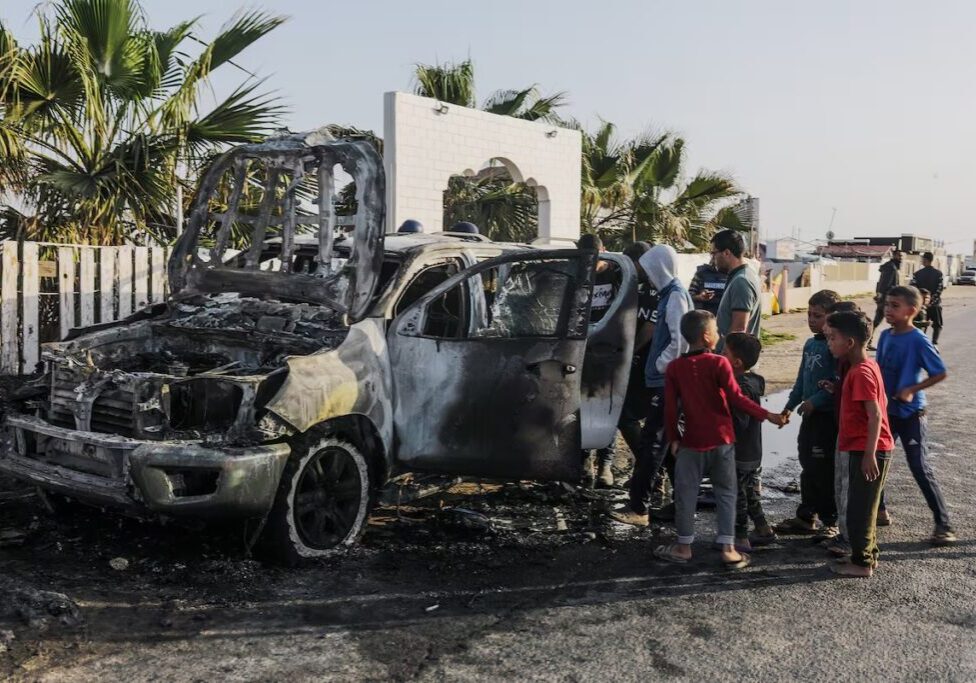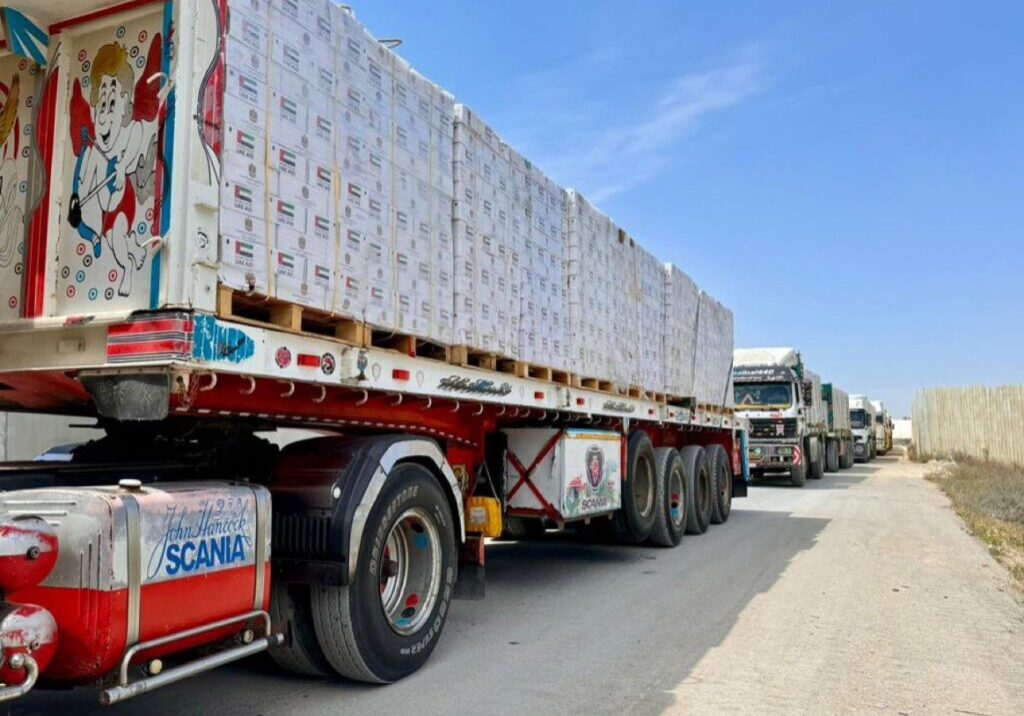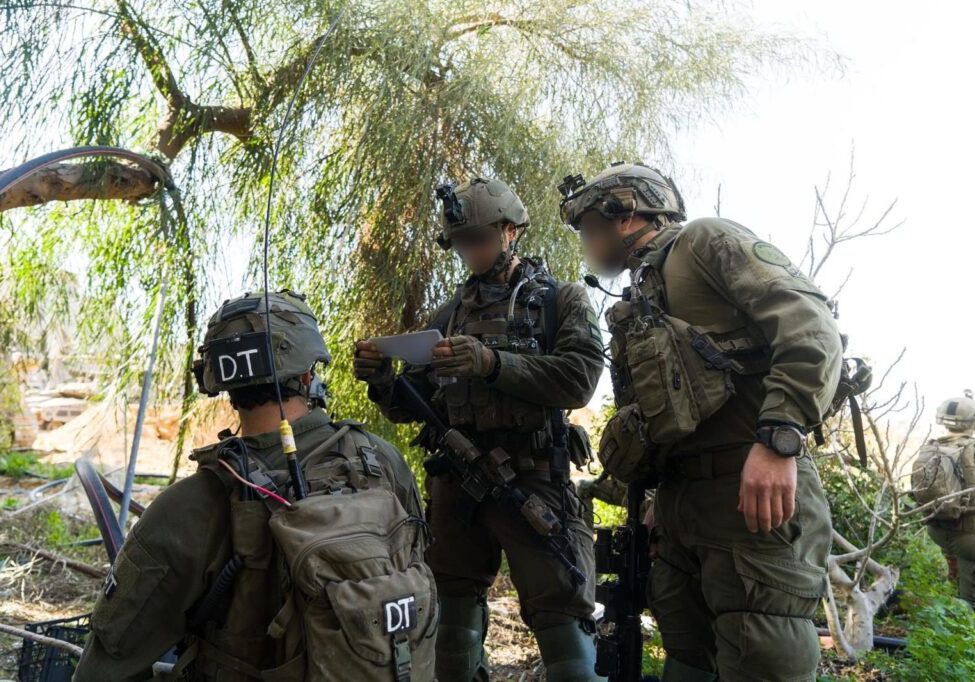Australia/Israel Review
Noted and Quoted – March 2016
Mar 9, 2016 |
A Claytons Election
Ahead of the Iranian parliamentary elections on Feb. 26, Fairfax chief correspondent Paul McGeough observed the extensive vetting process of potential candidates has gutted the moderate camp belonging to current Iranian President Hassan Rouhani (who is not up for reelection).
He noted that “Rouhani poses as a moderate. But in surviving the vetting process… Rouhani also has to be seen as a creature of the religious establishment who presides over one of the world’s most repressive countries – and who now must put up or shut up if his reformist credentials are to mean anything.
“Since taking office, Rouhani’s supporters have argued that he could move for social and political reform only after a successful nuclear deal that would end sanctions – their argument being that improved economic circumstances for ordinary Iranians would leave them less in the thrall of religious hardliners who hold sway over the religious, security and judicial establishment… That kind of ‘normalisation’ talk directly threatens the power and prestige of the Islamic Revolutionary Guard Corps in particular… [which] reputedly controls as much as two-thirds of Iran’s GDP… and it has stacked the parliament with its own stooges. The Revolutionary Guard… is not obliged to report to Rouhani but answers directly to the Supreme Leader – and its spearhead role in executing Tehran’s agenda in the Syrian and Iraqi conflicts puts it even further beyond the reach of a mere elected president,” Age/Sydney Morning Herald (Feb. 20).
Similarly, the Australian editorialised (Feb. 24) that Iran’s election campaign has shown “how naive Barack Obama and other Western leaders were in expecting that last year’s historic nuclear deal and the lifting of sanctions might spark reform in one of the world’s most repressive societies… Repression remains entrenched, as it has since the 1979 revolution. At least 830 people, many juveniles, were executed last year and hundreds of activists, writers and journalists were rounded up. Iran, like North Korea, remains designated as a sponsor of state terrorism. And it continues to pursue its aggressive foreign policy across the Middle East with its Republican Guards [sic] and close ally Hezbollah involved in the outrages being committed by Syrian President Bashar al-Assad against his own people. While boosted by a $130 billion windfall from the lifting of sanctions, Tehran is still far from being an acceptable member of the international community.”
Transparent agenda
A report from ABC Middle East correspondent Sophie McNeill that was nominally about a proposed Israeli law requiring NGOs to declare whether they accept funding from foreign governments seemed more like a promotion for the radical foreign-funded Israeli NGO “Breaking the Silence” (BTS).
According to McNeill, BTS’s critics are “furious that [it] has taken its message against the Israeli occupation to an international audience.”
The report included testimonies from BTS which McNeill said “documents what it claims is evidence that the Israeli Army acts immorally and in some cases even commits war crimes.”
BTS spokesmen Nadav Weiman complained that a night raid on a Palestinian home was not about “protecting Israel”, while an anonymous soldier claimed that during the 2014 war with Hamas “I felt that we …[were] doing things I was raised not to do – not to kill the innocent.”
Liam Getreu of the New Israel Fund Australia attacked the proposed law, saying it aims “to delegitimise and undermine these organisations. These organisations are the real opposition in Israel.”
Daniel Luria, Director of the group Ateret Cohanim, was drafted to offer some token support for the proposed law, saying, “could you imagine for a second that the Israeli Government decided to fund non-profit organisations in Australia, if there was such an organisation that was trying to either stop or encourage immigrants coming into the country?”
But there was no questioning of the methodology of BTS, which is accused of relying on anonymous testimony that omits basic information such as dates and places of alleged offences, making investigation nearly impossible.
McNeill has herself interviewed retired Australian general Jim Molan, who studied Israel’s conduct during the 2014 war and called it exemplary. But of course he was not cited in this extended advertisement for BTS.
The reality is the transparency law does not silence free speech in any way – but McNeill continues to one-sidedly rely on the free speech of Israeli left-wing advocacy groups as the basis of her reporting, with minimal token alternative views to supply the appearance, but not the reality, of compliance with her obligations as a taxpayer-funded ABC journalist, ABC TV “7.30” (Jan. 29).
French Kiss
McNeill also reported on a French government initiative to recognise a Palestinian state should its proposal for an international peace conference between Israel and Palestinians fail.
The report quoted Israeli PM Netanyahu objecting to the French linking of recognition to the success or failure of a conference because “this constitutes an incentive to the Palestinians to come along and not to compromise. The essence of negotiation is compromise, and the French initiative, as it has been reported, in essence gives the Palestinians, a priori, the reasons not to do so. Our position is very clear. We are prepared to enter direct negotiation without pre-conditions and without dictated terms.”
Palestinian chief negotiator Saeb Erekat was quoted welcoming the proposal, “We believe this is timely… but we cannot ensure this without a balance, that is to end the Israeli occupation and establish a Palestinian state in the 1967 lines with East Jerusalem as its capital.”
Erekat of course knows that former Israeli PM Ehud Olmert had offered the Palestinian Authority just such a deal for a state in 2008. Erekat admitted as much in a November 2011 radio interview whilst also acknowledging that Israeli settlements only cover 1.1% of the West Bank.
McNeill, who felt the need to speak about the “Palestinian West Bank”, overlooked both these facts, which would have jibed anyway with her statement that “French Foreign Minister Laurent Fabius criticised continued Israeli settlement construction in the Palestinian West Bank, telling French diplomats that France must not let the two-state solution unravel,” ABC Radio “PM” (Feb. 1).
Tortured Editing
A McNeill radio report looking at jailed Palestinian hunger striker Mohammed al-Qeeq suffered from sloppy editing that made it seem like an Israeli spokesman admitted Israel had tortured him.
McNeill stated, “al-Qeeq also alleges that he was tortured by the Israeli security services… Israeli security officials have told the ABC allegations about torture are ‘totally baseless’.”
The report then segued directly into Israeli Government spokesman Mark Regev saying, “We prefer not to use it, but sometimes when dealing with hard-core terrorists there is no alternative. Because if you bring the evidence against them to an open court of law, the terrorist organisation can act very violently against witnesses and sometimes this process is an unfortunate necessity.”
In fact, Regev was talking about Israel’s policy of using administrative detention to detain some terror suspects, not torture. This only came to light when the broadcast version of the report was compared with McNeill’s online written report which contained the following statement between McNeill’s statement about torture and Regev’s statement: “Human Rights groups said there are nearly 600 Palestinians being held in administrative detention without charge or trial. The ABC asked Israeli Government spokesman Mark Regev about the use of the controversial policy.”
The mistake was eventually corrected on the ABC website, ABC Radio “PM” (Feb. 10).
King of Dreams
ABC host Geraldine Doogue asked former Newsweek Jerusalem bureau chief Dan Ephron, who has written a new book on the assassination of Yitzhak Rabin entitled Killing a King, (reviewed in the last edition of the AIR) to comment on how much progress towards peace the two sides had made before Rabin’s murder.
Ephron acknowledged that Rabin never talked about a Palestinian state and that the Oslo Accords was an interim agreement “where the two sides could build confidence as they go through these processes…incrementally” but said that on the eve of Rabin’s assassination, then US Ambassador to Israel Martin Indyk told Washington there was no going back.
Today, in Ephron’s view, the peace process has “rolled back to the extent that today, 20 years later, it’s almost impossible to fathom any kind of peace deal or peace process between the two sides anymore.”
Of course, the same Indyk was involved in US mediation during the 2013-14 peace talks between Israel and the Palestinian Authority and said of current Israeli PM Netanyahu that his offer was in the zone of a possible agreement, but that PA President Mahmoud Abbas seemed disinterested.
What Ephron omitted to say, but which his own book makes clear, is that under Rabin’s successor Shimon Peres, “Israel completed its withdrawal from each of the cities in the West Bank except Hebron and from many of the towns and villages” and it was a series of Hamas suicide bombings in early 1996 that destroyed the reelection hopes of Peres.
Moreover, although his book acknowledged the Second Intifada, it failed to note that this was preceded by the Camp David peace talks in 2000 where Israeli PM Ehud Barak explicitly offered PLO head Yasser Arafat a state that was likely at least as generous as what Rabin would have offered had he lived. Furthermore, Peres’ successor, Netanyahu made significant withdrawals from the West Bank in 1998, while Israeli PM Ehud Olmert’s offer of a state in 2008 was even more generous than Barak’s.
All these key points disprove the contention that Rabin’s assassination effectively ended or reversed the peace process, as Efron implied, ABC Radio “Saturday Extra” (Feb. 20).
Context Wiped Out
A BBC radio program about a surf club in Gaza, originally broadcast in November 2012, appeared on ABC Radio National on Feb. 18.
The 30-minute report tried to show how surfing can bring Palestinians and Israelis together, presenting a picture of oppressive Israeli security, whilst repeating many familiar factually dubious and context-free claims.
This included one man saying, “Gaza is surrounded by three walls and the sea from the north [sic] so there is no way to escape, to enter Israel or to leave abroad.”
There was also talk of the “siege of Gaza”, with one surfer saying they surf so people outside of Gaza won’t think they are “crazy”. No one thinks Gazans are crazy, but there was no effort made to explain that Gaza is under the cruel dictatorship of Hamas, which is committed in word and deed to Israel’s violent destruction – just an oblique reference that in 2010 “the Hamas government banned all peace-making initiatives across the border.”
Moreover, Gaza wasn’t under siege, merely a limited blockade to prevent importation of weapons and other materials that could be used for military purposes.
The founder of the Gaza Surf Club, Matthew Olsen, talked of the female surfers who struggle because they are weighed down by their heavy clothing – without explaining that women risk being arrested if they wear swimsuits in Gaza.
One Israeli involved wanted Israeli and Palestinian surfers to be able to surf together, but no one stated the obvious fact that Hamas would never allow it.
Nor was it clearly explained that Gaza does have an alternate exit to the world, sharing a border with Egypt, which is also highly wary of Hamas, ABC Radio National “Earshot” (Feb. 18).
Welcome back context
A report on Feb. 15 evaluating the chances for a Palestinian state saw the Australian’s Middle East correspondent Jamie Walker include some vital context and realism his immediate predecessor often omitted.
“Although he goes by the title of ‘president’ of the PA, [Mahmoud] Abbas is in the 10th annum of what was supposed to be a four-year term and shows no sign of submitting again to the democratic will of Palestinians… Let’s not forget that’s what happened when Israel withdrew unilaterally from Gaza in 2005 and the Palestinian Authority was supposed to take control… The PA was chased out by gunmen of Hamas… Israel has since fought a succession of wars with Hamas in Gaza. A disastrous uprising by the Palestinians between 2000-05 – known as the second intifada – propelled Israel to wall itself off from the West Bank territories, locking the Palestinians out of what has been the greatest spurt in economic growth in the Jewish state’s history.”
Walker Right In
International Editor Tony Walker called for the United Nations to recognise the “campaign of mass killings, torture and starvation” by Islamic State in Syria and Iraq and the Assad regime in Syria as “genocide”.
He observed that, “vastly complicating the West’s responses to mayhem in the Middle East is that in effect it is waging two humanitarian conflicts connected to each other, but separate as well.”
In addition, “those arguing that any peace arrangement in Syria would need to involve a continuation in office – for a transitional period – of Assad himself” should read the UN’s report “Out of Sight, Out of Mind” which “provides sickening detail of Damascus’s treatment of prisoners in detention.”
Moreover, “having committed itself to propping up the Assad regime in a merciless bombing campaign there is little sign Moscow will allow a process to go forward that involves Bashar al-Assad’s removal. In effect, Russia is enabling Syrian war crimes and should itself be held accountable for those crimes,” Australian Financial Review (Feb. 12).
Shaaby claims
Syrian President Bashar al-Assad’s senior adviser Dr. Bouthaina Shaaban told ABC host Tony Jones that the UN report’s claims are “totally unfounded”.
Dr. Shaaban insisted that “the only way… to end this war on Syria” is for Western countries “to join the Syrian Army and the Russians in fighting terrorism” and suggested that the destruction of cities like Aleppo by the Syrian army was no different to when “the American coalition liberated Ramadi. 90% of Ramadi is destroyed.”
She also denied that Russian airstrikes were hitting civilians in Aleppo, ABC TV “Lateline” (Feb. 11).
Meanwhile, UK Telegraph senior correspondent David Blair noted the nexus between ISIS and the Assad regime, writing, “when it comes to terrorism, the only group that has already attacked Europe – the Islamic State of Iraq and the Levant (ISIL) – is also the only armed group in Syria that enjoys a measure of immunity from the striking power of Assad and Russia. The dictator’s strategy remains what it has always been, namely to crush every enemy except ISIL and then force the West to make a choice,” West Australian (Feb. 15).
UNhinged on Israel
In a withering critique of the United Nations, columnist Rowan Dean decried it as one of “the most useless, corrupt shameful and hypocritical organisations on the planet.”
“From 2006, when the UN Human Rights Council was formed, to 2015, it passed zero condemnations of al-Qa’ida, Islamic Jihad, Hamas, Hezbollah, Saudi Arabia, Lebanon, Jordan or Egypt – but passed 61 condemnations of Israel.
“Israel is the only nation in the world that has a standing agenda item against it at every session of the UNHRC. Not North Korea, not China, not Pakistan, not Syria, not Sudan, not Iran. The council has never once even mentioned the word ‘Hamas’. Why?
“Because the UN is stacked with 57 Islamic nations who use every opportunity to silence criticism of themselves and their corrupt, racist, sexist and homophobic regimes with a relentless propaganda war against the only democracy in the Middle East…
“In 2012 there were 22 UN General Assembly resolutions against Israel, but only four for the rest of the world combined. So, just to be clear, in the eyes of the UN, a tiny democracy on a strip of land the size of the ACT is responsible for five times the horrors of war, starvation, torture, imprisonment, and terrorism of Russia, Syria, Iran, China, North Korea, and all the Islamic and African states combined,” Courier Mail (Jan. 25).
Beck’s call
On ABC TV’s “Q&A” (Feb. 22) an audience questioner enquiring what Australia might learn from Israel’s response to terror, saw Israeli journalist Eldad Beck explain that “Israel is not a priority” for Islamist terror.
“When al-Qaeda bombed the States, they came up with declarations not mentioning… Israel and, at a certain point, they understood that including the Israeli issue would make them more popular in certain parts of the world and this is the moment when they started attacking Israel. The same thing is happening now with ISIS.”
Federal Justice and Counter-Terrorism Minister Michael Keenan said, “the security situation in Israel is significantly worse than we find ourselves in… we wouldn’t accept in Australia, I think, the sorts of security measures that the Israeli Government is required to take because of their very serious security situation.”
This article is featured in this month’s Australia/Israel Review, which can be downloaded as a free App: see here for more details.
Tags: Australasia

